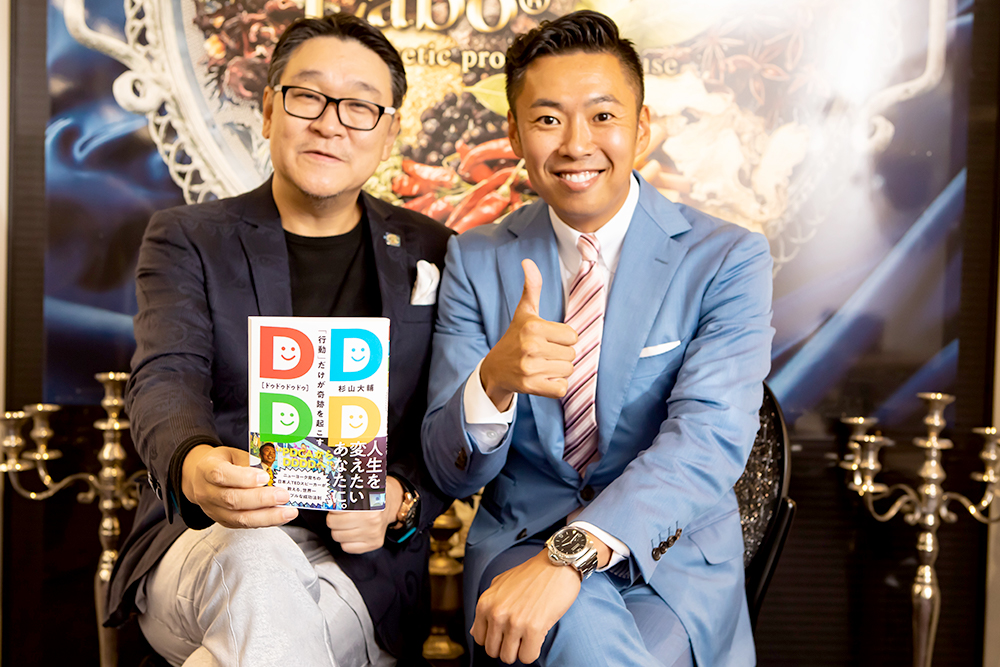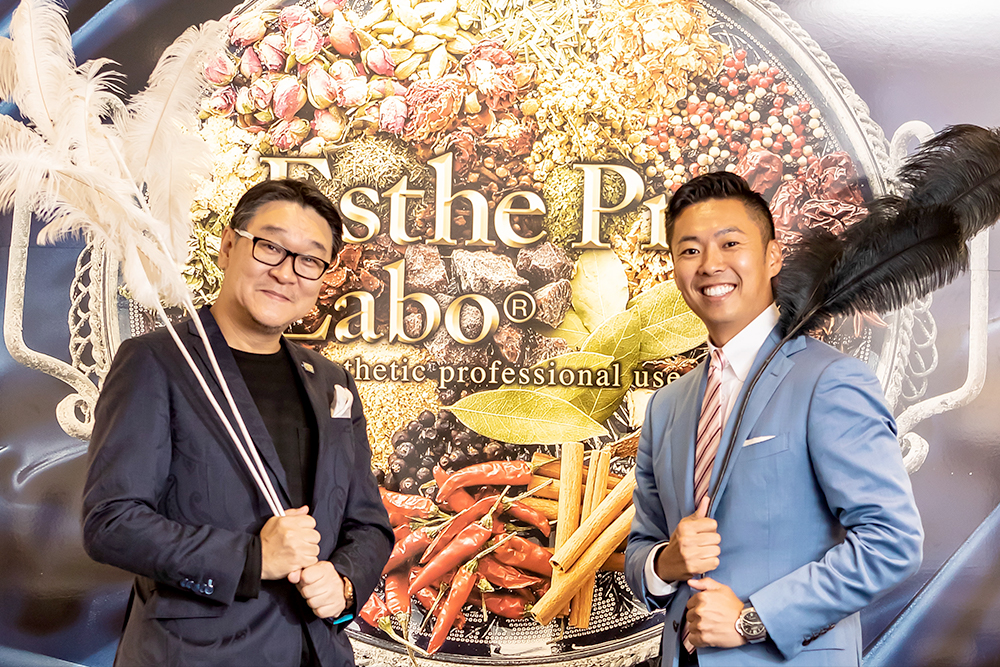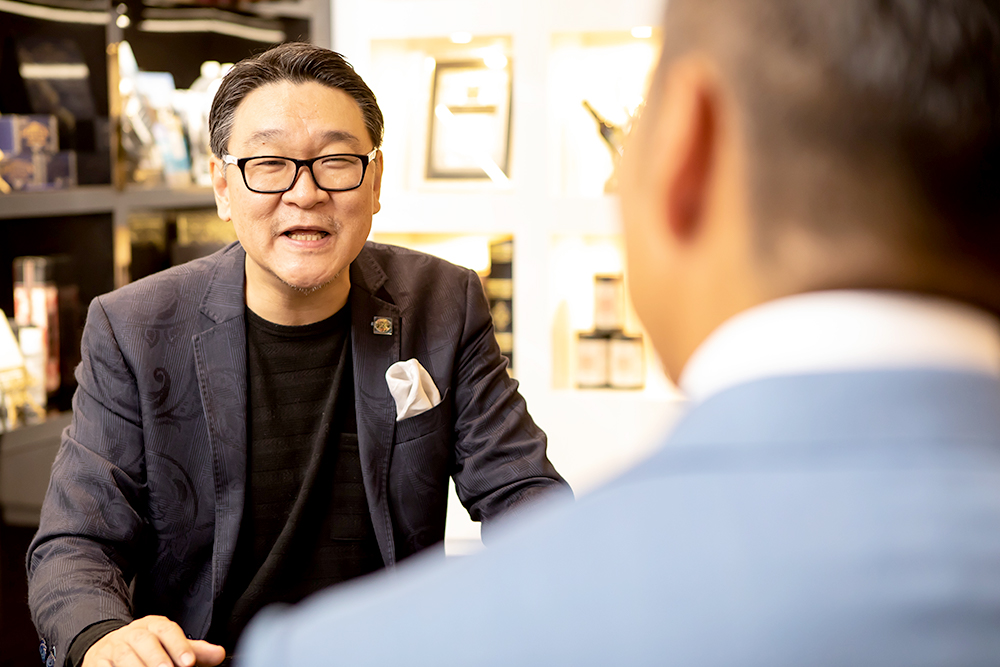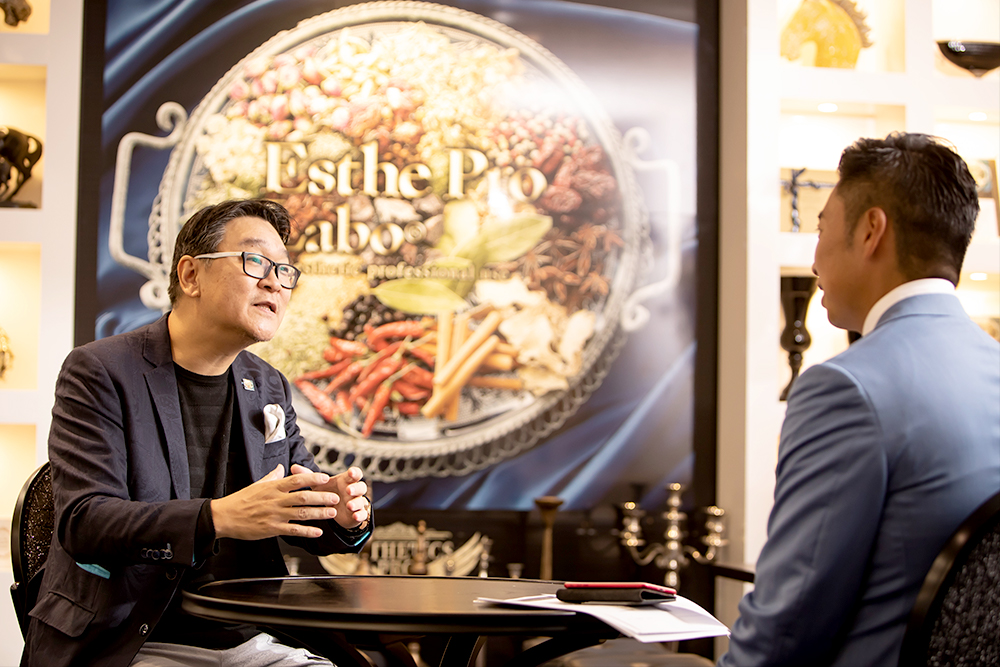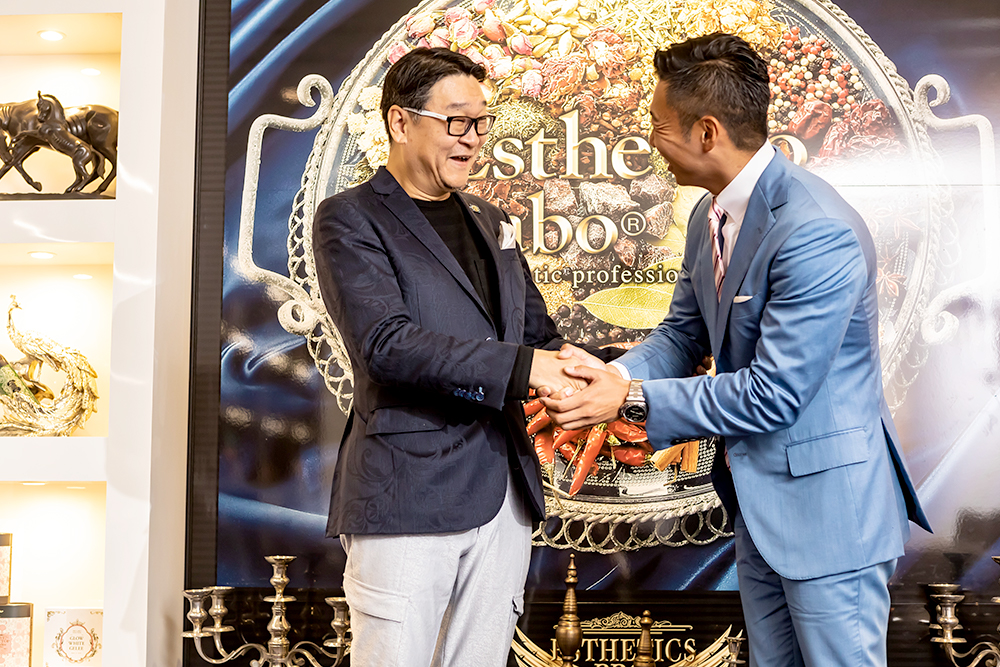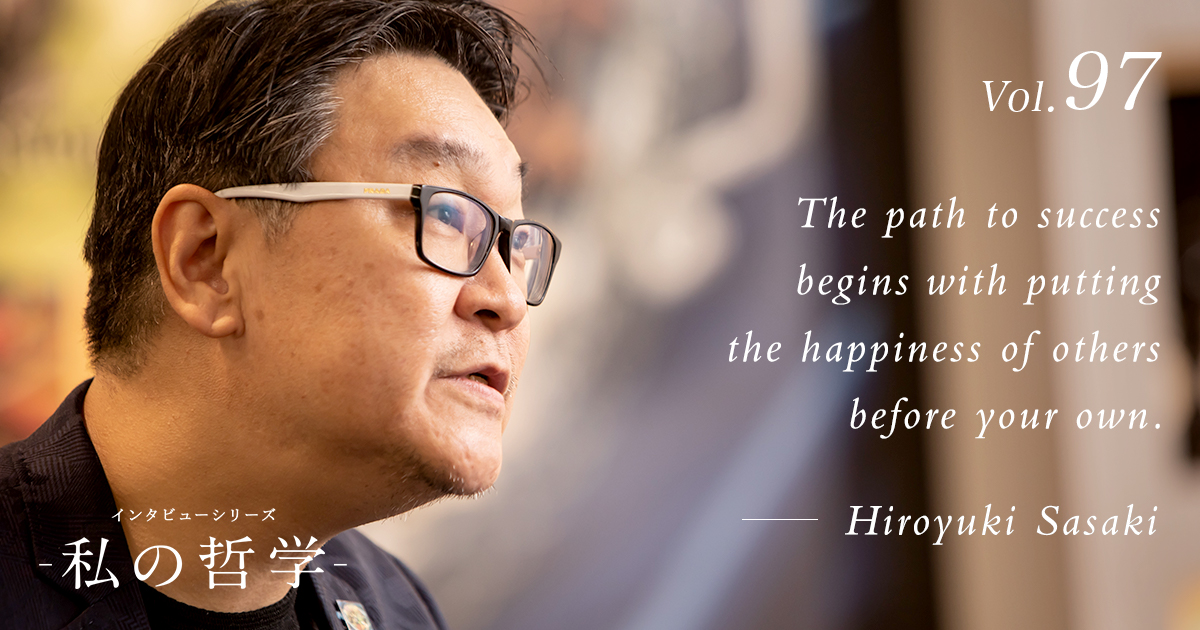
Hiroyuki Sasaki has never let failure stop him. Having rebuilt his business from the ground up, he talks about retaining a spirit of altruism and his company's raison d'être, its future, and his drive to become the world's leading inner beauty expert.
Profile
Vol.97 Hiroyuki Sasaki
Chairman, Group Representative & CEO Pro Labo Holdings Co., Ltd.
Born in 1968 in Kanagawa Prefecture. Graduate of Waseda University. After graduating from university, Sasaki began working for a security company. In 1998, he founded his first business producing advertisements and publishing free community newspapers. In 2002, he started managing an aesthetic salon franchise and began selling Esthe Pro Labo, his original line of salon-exclusive herbal tea. Since then, he has developed and marketed a range of inner beauty products, including enzyme drinks and supplements. He also established the Inner Beauty Medical Foundation, which conducts education, research, and seminars about inner beauty, preventive medicine, and fertility.
Learn from Your Mistakes
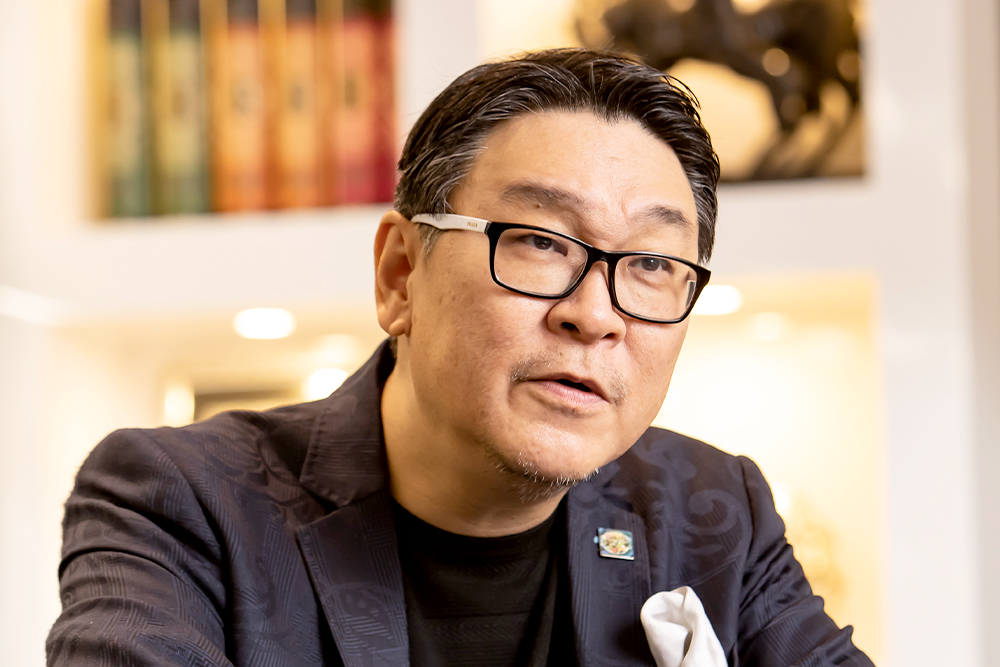
During university, I decided that I wanted to be an entrepreneur and started my first company at 30. I didn’t have a specific business in mind, but I had always liked reading books by politicians and entrepreneurs. I had a longing to do something meaningful and a desire to succeed. My first company produced free community newspapers and advertisements. And I worked hard. But at 35, I was stuck in a situation where I had clients who wouldn’t pay, which meant that I couldn’t pay off our bank loans, and the company began to go off the rails. I didn’t just lose money−I lost the trust of my bank, my clients, and my employees. And I always blamed my circumstances for these losses. When nothing seems to go right, you start wondering why the world has betrayed you, why the business didn’t work out. But eventually, you look inside and you realize that the cause of everything may lie within.
Around that time, I was reading books by Kyocera and KDDI founder and philanthropist Kazuo Inamori and Panasonic founder Konosuke Matsushita when I learned about the “altruistic mind.” In the past, it was hard for me to understand that taking steps to enrich your life could lead to happiness. I thought that if I didn’t succeed, I wouldn’t be able to contribute to society in any way. It took being driven to the point of bankruptcy to understand that if you don’t enjoy what you’re doing, you won’t succeed. I realized that this was entirely my own issue. Now, I genuinely believe that a significant business endeavor cannot succeed without focusing on happiness. You begin with the happiness of your family, followed by that of every employee, and extend that to your subcontractors, clients, and customers. You then include everything that lies beyond: whole industries, the people of Japan, Asia, and the world.
The Qualities of an Entrepreneur
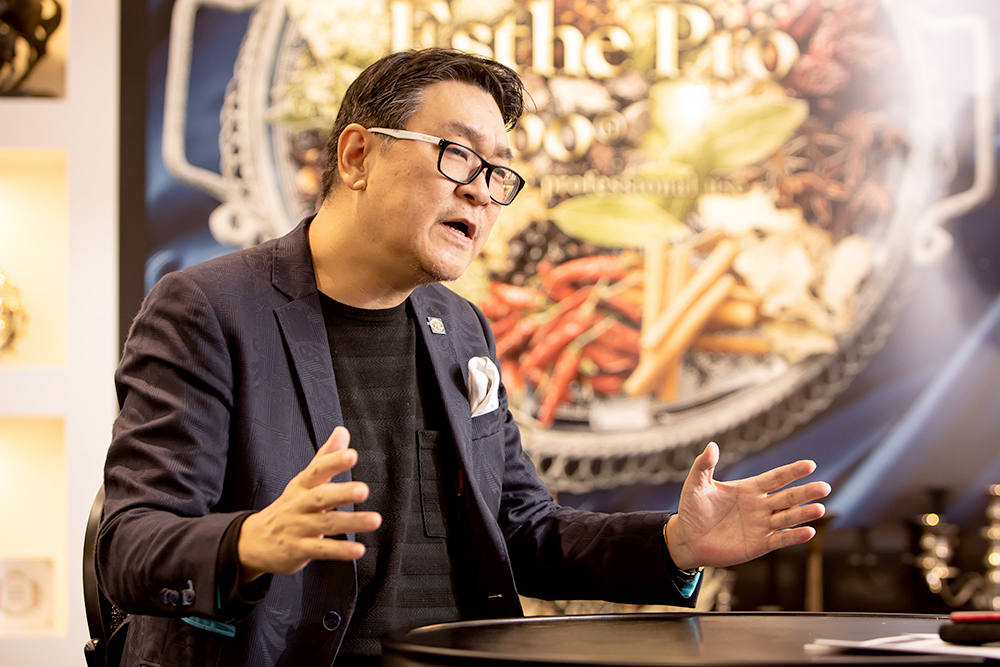
An old friend told me that during my early 30s, it always seemed like I surrounded myself with questionable people. Looking back, I went along with just about anyone, no matter how far-fetched their ideas were. [laughs] I was optimistic and tried to put a positive spin on everything. But with experience, I eventually got both feet on the ground. I’ve developed the habit of always looking before I leap, which may stem from the trauma of my past failures. But when you get right down to it, managing a business is a long series of decisions. I think that people who are both vigilant enough to be overly cautious and are bold to the point that it worries those around them are the ones who will find the most success.
Japanese society doesn’t offer much hope for second chances−once a failure always a failure, as the saying goes. The Japan Finance Corporation only provides loans for people to start businesses in areas where they already have experience. Experience is important, but I think we could be more accepting of people who want to try something new. If you don’t, then the young, talented people of Japan will end up looking for opportunities overseas. With the country’s population already in decline, I think this is a critical issue.
Force Concentration & Superiority Strategies
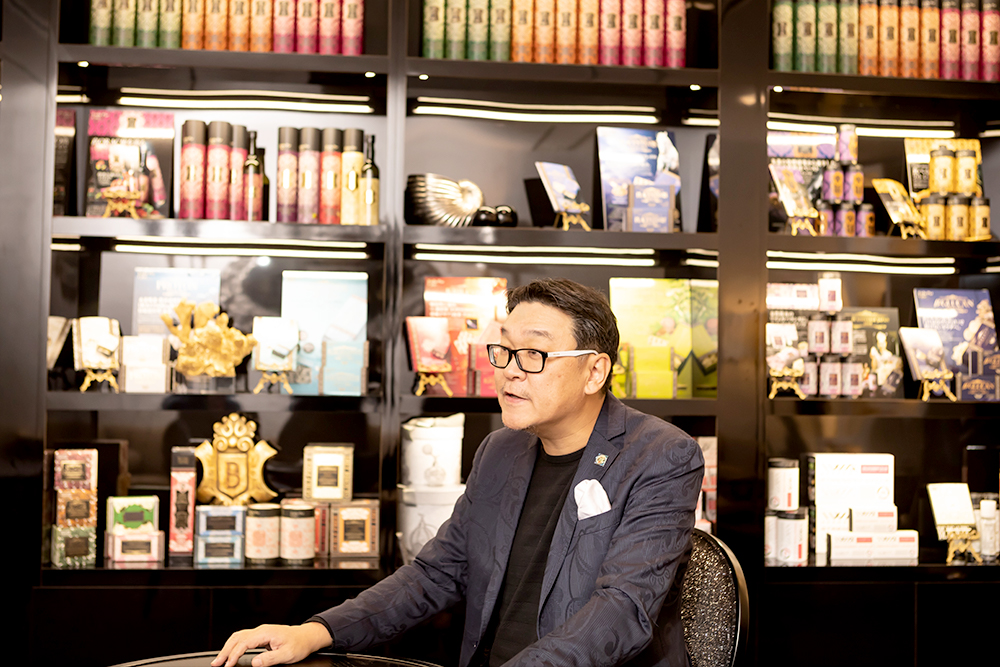
Successful management relies on a winning strategy built upon the company’s raison d’etre. I read a book about Lanchester’s laws, which is where I first learned about the concepts of “force concentration” and “superiority.” Whether I was producing advertisements or managing aesthetic salons, we were never going to be the best in the business. It’s not enough to do what you want−you have to gain superiority by being the best at what you do. So, in 2007, I developed three kinds of herbal tea, and by targeting esthetic salons−a market I had experience in−we set out to sell our teas exclusively to salons and to be the best in that market. If we had entered a fiercely competitive market like cosmetics, for example, we would not have never been able to become number one in the industry or expand our business into what it is today.
Once you become number one in a smaller market, you can then use that experience to expand. That order of operations is essential. After becoming number one in herbal teas, we later developed enzyme drinks, diet foods, and other health and beauty products. Branding is also important. In our case, we made a massive pivot from herbal teas to the concept of “inner beauty” to offer the best products in our industry. And I think that now we probably have the biggest share of the aesthetic salon market. Next, we’ll take on Japan and then the world.
The Key to Health Is in the Gut
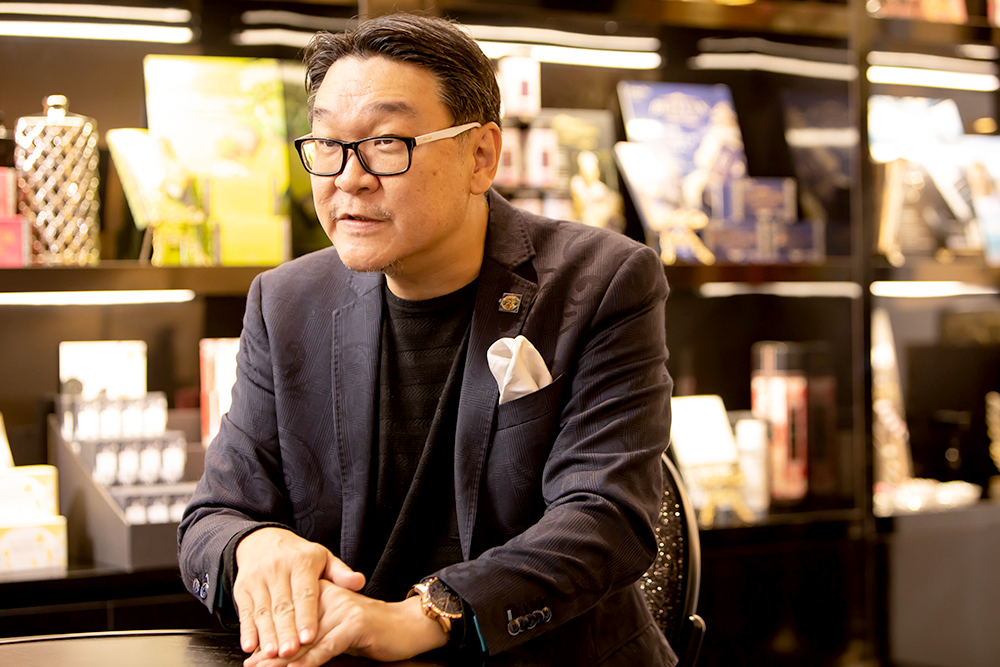
The basis of inner beauty starts just there−inside the body. The sole purpose of our company is the promotion of health and longevity. Health and longevity do not refer to prolonging a bedridden state, but to living a full, healthy life until the very end. And that is why nutrition is so important. Today there are issues of pesticides, food additives, harmful metals, refined sugars, and poor-quality oils. Even overeating has become a severe problem. When I worked in advertising, I weighed 100kg, smoked like a chimney, and drank like a fish. Now in the mornings, I only have enzyme drinks for breakfast and, ideally, have just one meal a day at dinner time. With so many business dinners, it can be challenging to maintain that schedule, but giving your stomach and intestines a break is essential for maintaining good health.
It is said that you are what you eat, but really you are what is absorbed by your small intestine. If your intestines are in bad condition, then they start to absorb bad things, your blood is contaminated, and your cells become polluted. The intestines are thought to be related to developmental disorders, but hormonal neurons only reach the brain after precursors are first seen in the intestines. In fact, purifying the gut and warming the body improves a variety of physical ailments. That is why we hold nationwide seminars and lectures with doctors about warming up and improving gut health.
Extending Health & Longevity Around the Globe
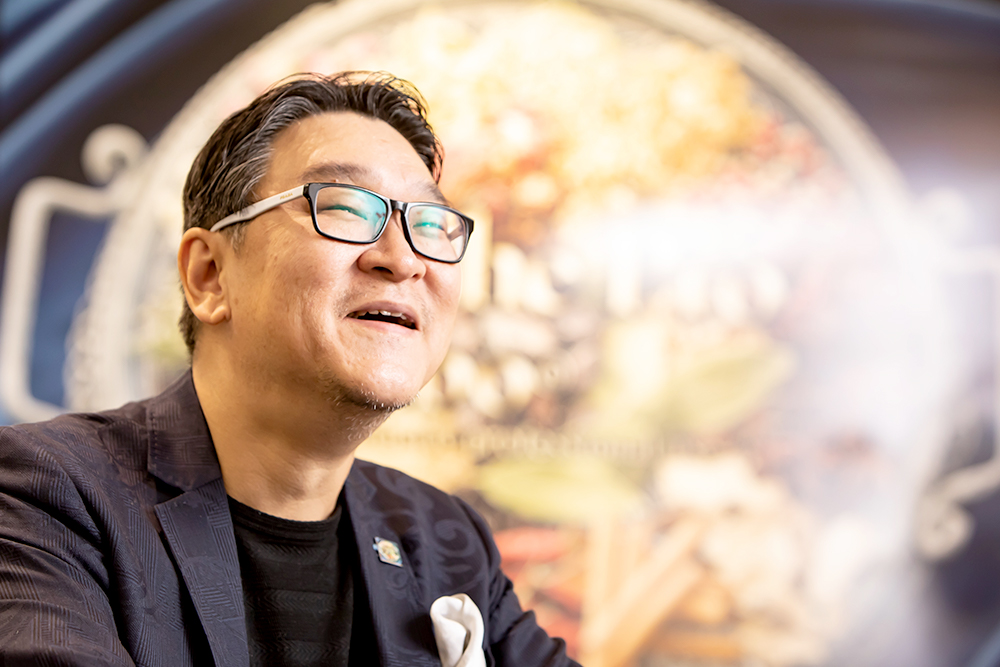
In addition to our GRAN PRO series of 19 lines with 53 products such as herbal teas and enzyme drinks, we offer a PRO series, conceptual series for overseas, and a GranMedic series, whose development was overseen by medical institutions. Many health foods market themselves by image alone, but we only sell products that have scientific evidence backing them up. We partner with medical advisors and receive guidance from professors at the University of Tokyo. I’ve always understood the importance of collecting relevant academic material and having efficacy proven by third-party organizations. You cannot always tell how a product is made just by looking at the ingredients. There is always the possibility that chemicals are used in the processing of raw materials. Our lactic acid bacteria supplement Flora Balance EX Gran Pro is made from 100% plant-derived materials. We use lactic acid bacteria and yeast found in pickles called sunkizuke, a specialty from Nagano Prefecture made without any additives.
We focus on making sure our dealers have the correct information and a proper understanding of food−rather than just knowledge of our product−so that they can communicate that to consumers. We put a great deal of effort into food education rather than emphasizing sales alone. The Inner Beauty Medical Foundation is one of those efforts and is where we are engaged in a variety of activities such as conducting education, research, and seminars about inner beauty, preventive medicine, and fertility. Additionally, from the perspective of health care, we operate clinics that specialize in regenerative and preventive medicine. We also develop professional-grade health equipment.
We currently do business in six countries around the world, but with serious health issues like diabetes, which is affecting places like the Middle East, we would like to expand outside of Japan and Asia within the next five years in order to contribute to the health of people around the world.
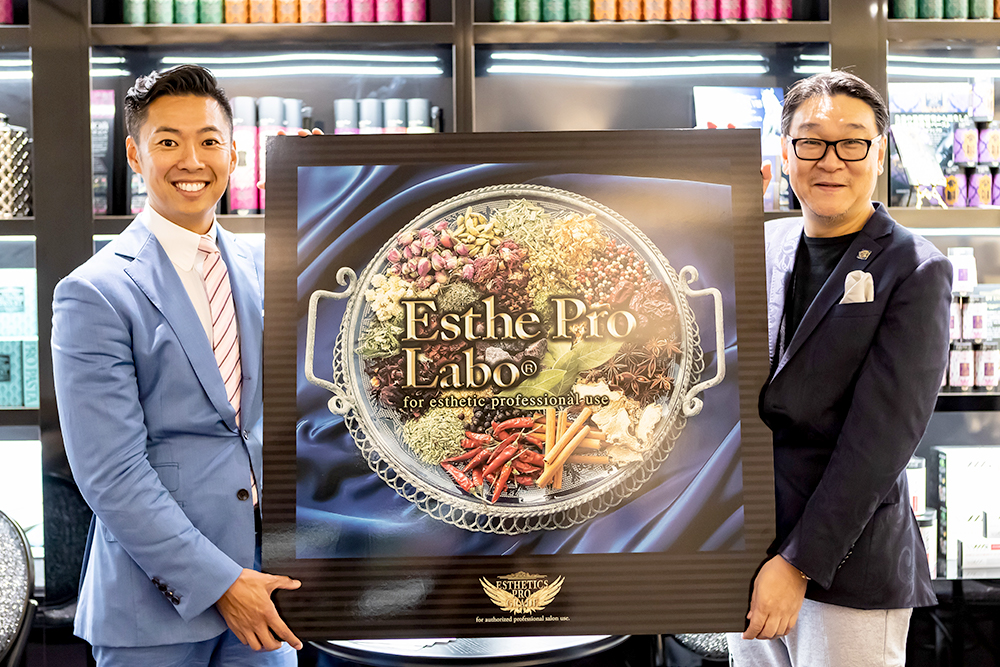
When I had dinner with Seiji Yamashita, the author of Successful Habits to Earn 100 Million Yen a Year, I received a booklet titled Doers: Decisions and Actions for Your Forties. In it, Yamashita describes his way of life in vivid detail. He told me that an interesting character named Daisuke Sugiyama had edited his booklet, so I decided to get in touch. Sugiyama has a brazen honesty, a graceful sense of action, and the profound insight of someone who has known setbacks. I knew I needed some inspiration from him, which is what led to this interview.
I’ve been interviewed before, but Sugiyama’s approach was a head above the rest. He had clearly done his homework on me beforehand and approached the interview from an entirely new angle. He got into my head−in a good way−and was tugging on my heartstrings by the end. [laughs]
This interview also reminded me of something that I had forgotten, a habit that is at the foundation of everything I do: to believe in myself and act quickly. Even though I may have stumbled and fallen along the way, I have always gotten back up, made changes, and developed principles and values that I truly believe in. I keep studying and employ a strategic style of management based on those principles. And these days, I’m just grateful to be alive.
I think honesty, imagination, and action are the biggest keys to doing good work, and Sugiyama is the rare professional who possesses all three of these traits. I hope we can work together to make this world a better place for all of the people on it.
Hiroyuki Sasaki Chairman, Group Representative & CEO Pro Labo Holdings Co., Ltd.
I place tremendous value on doing the things I want to do and meeting the people I want to meet. This is something I learned from my mentor Tomio Taki, who appeared in the 54th issue of My Philosophy. This time, I had the opportunity to meet and interview Hiroyuki Sasaki, someone I had always wanted to meet. Going to Mr. Sasaki’s office, you see that he has communicated his vision and ways of thinking to his employees. They all have a smile on their face and are genuinely excited to be there.
Ahead of the interview, I did some research on inner beauty, but it didn’t prepare me for what I was about to learn. This interview taught me how to take better care of my body and to be aware of the importance of food and drink in maintaining my health. I have the utmost respect for Mr. Sasaki’s data-driven product development process, as well as his strategies of force concentration and superiority.
Our interview happened to coincide with the release of my third book DDDD: Do, Do, Do, Do. My interview with Mr. Sasaki reassured me that continuing to “do” is the best way to open up new paths in life and in business. The DDDD cycle, in which you think and do at the same time, is becoming ever critical today, disrupting the conventional PDCA cycle. At the end of the interview, I thought to myself: “Just DDDD it and continue to DDDD your best!”
This interview took place at Prolab Holdings, Inc., in October 2019. Text by Naomi Kusuda. Photography by Akane Inagaki. Translation by Queen & Co.




